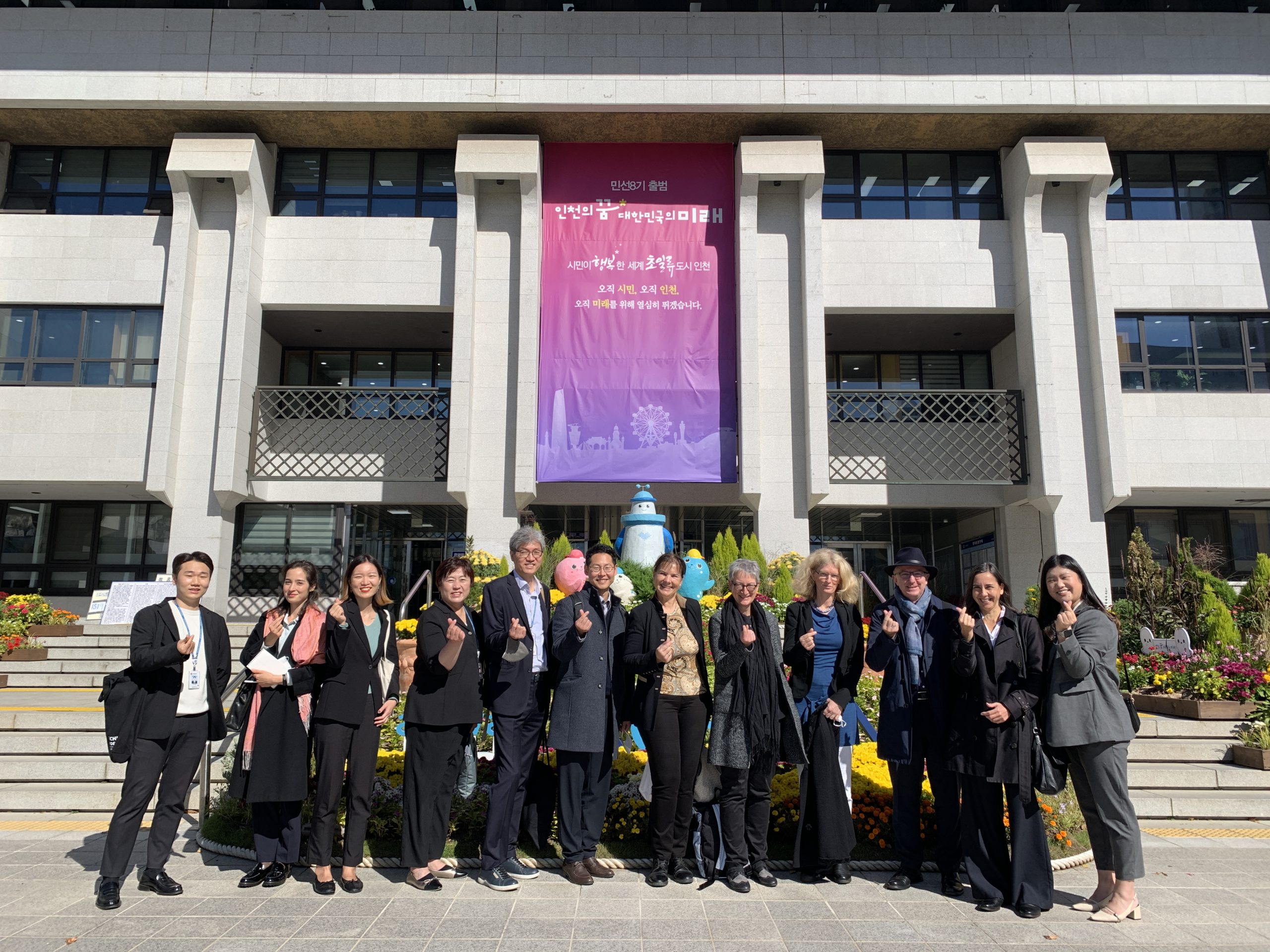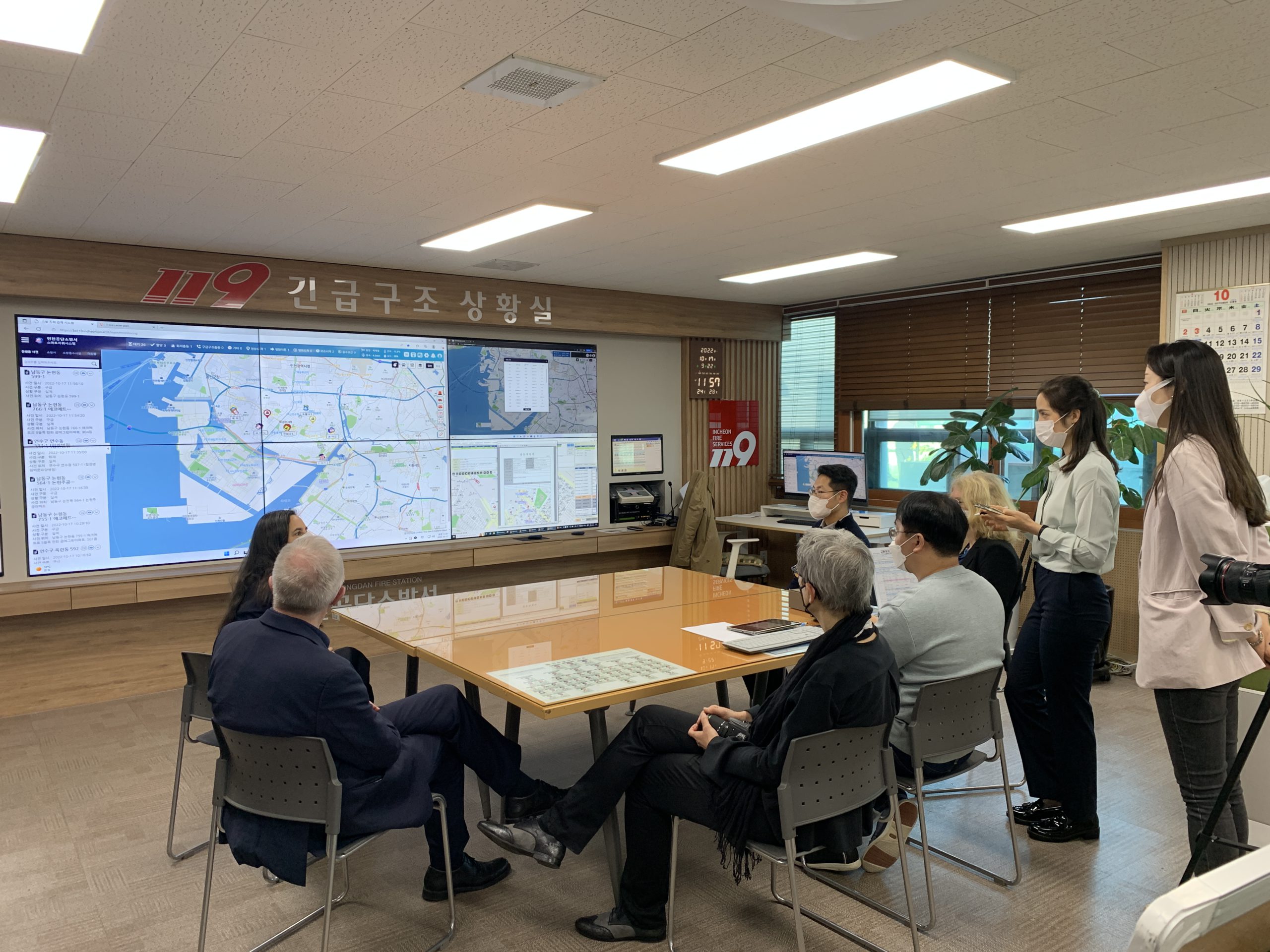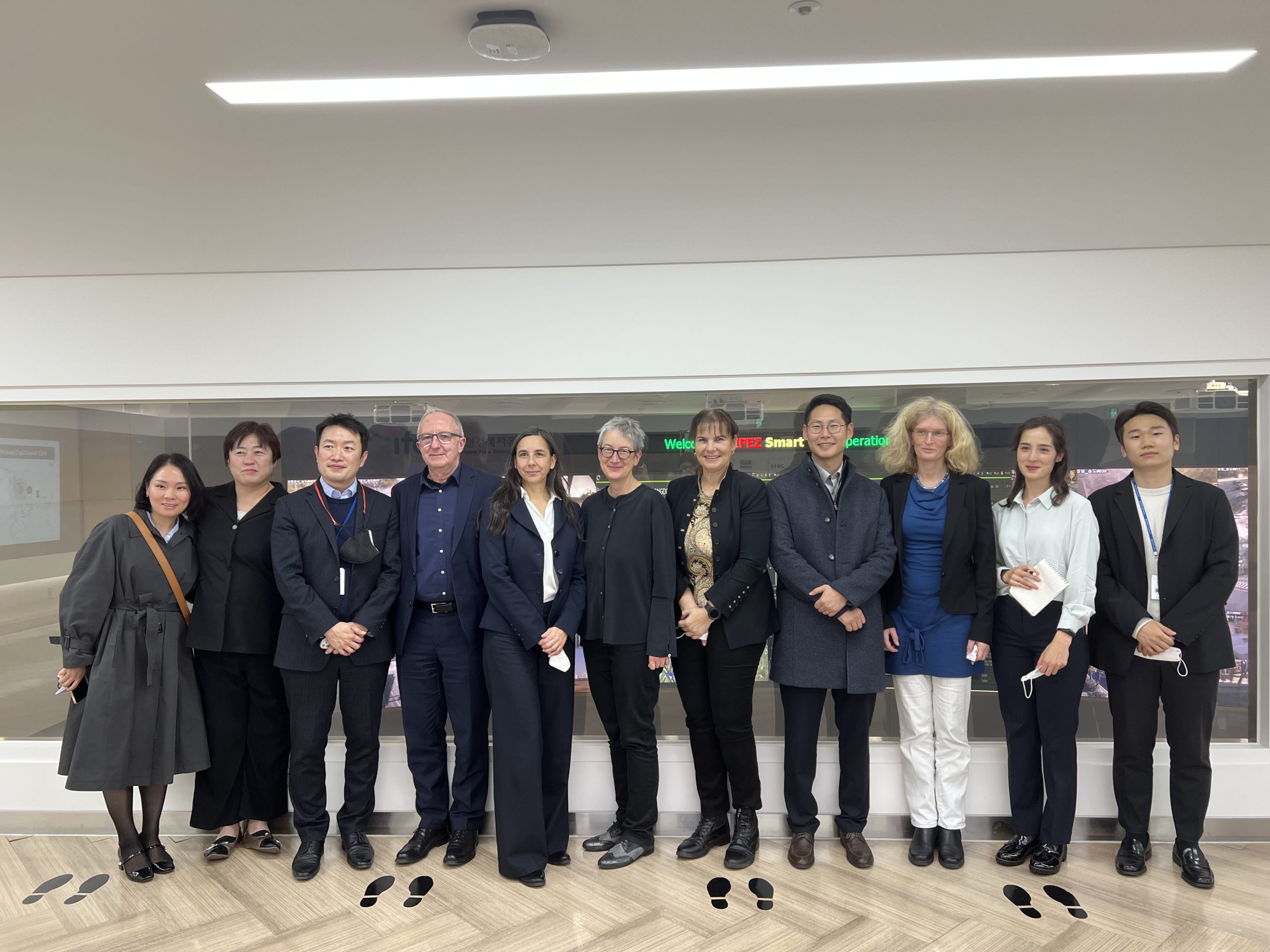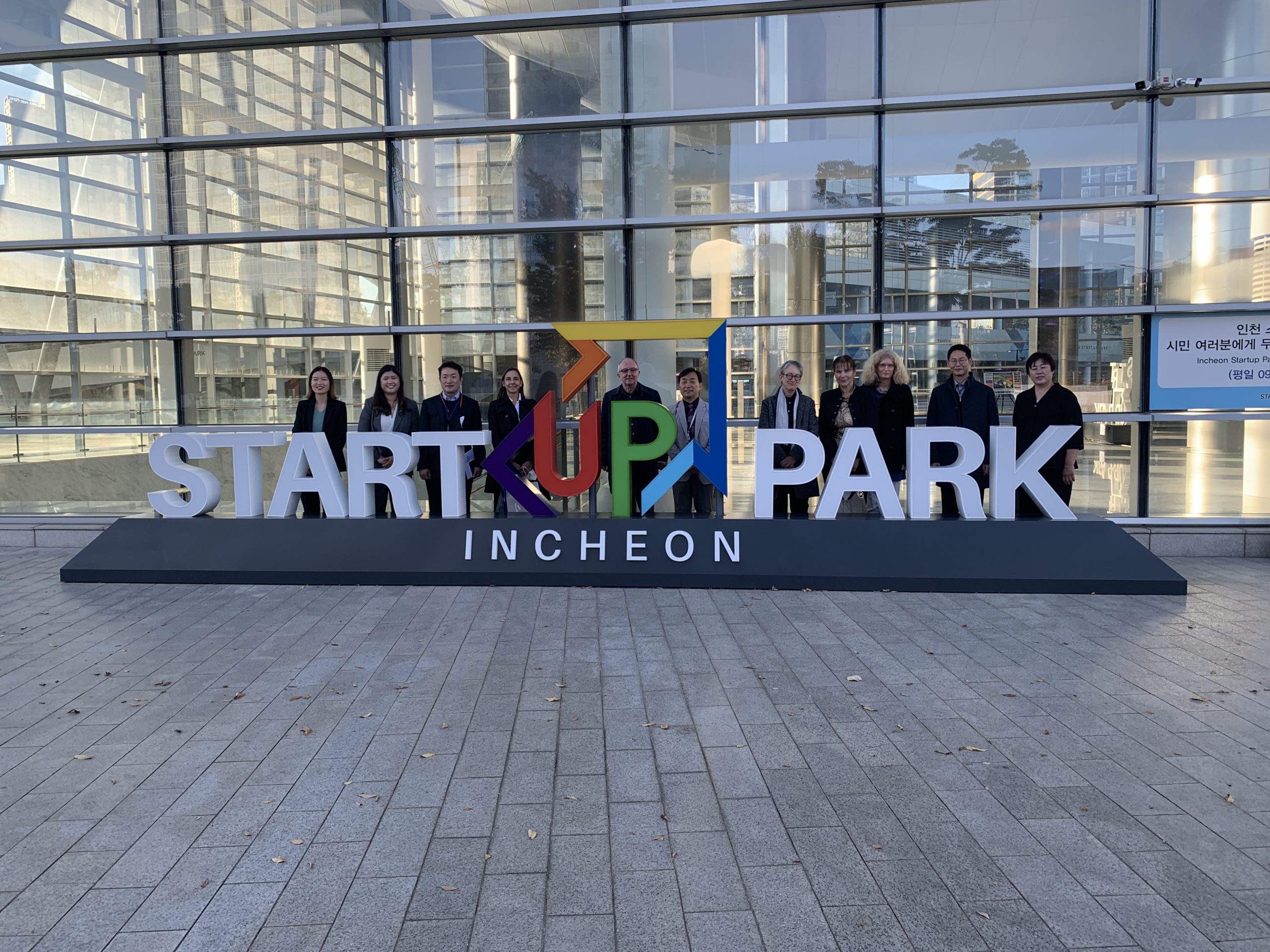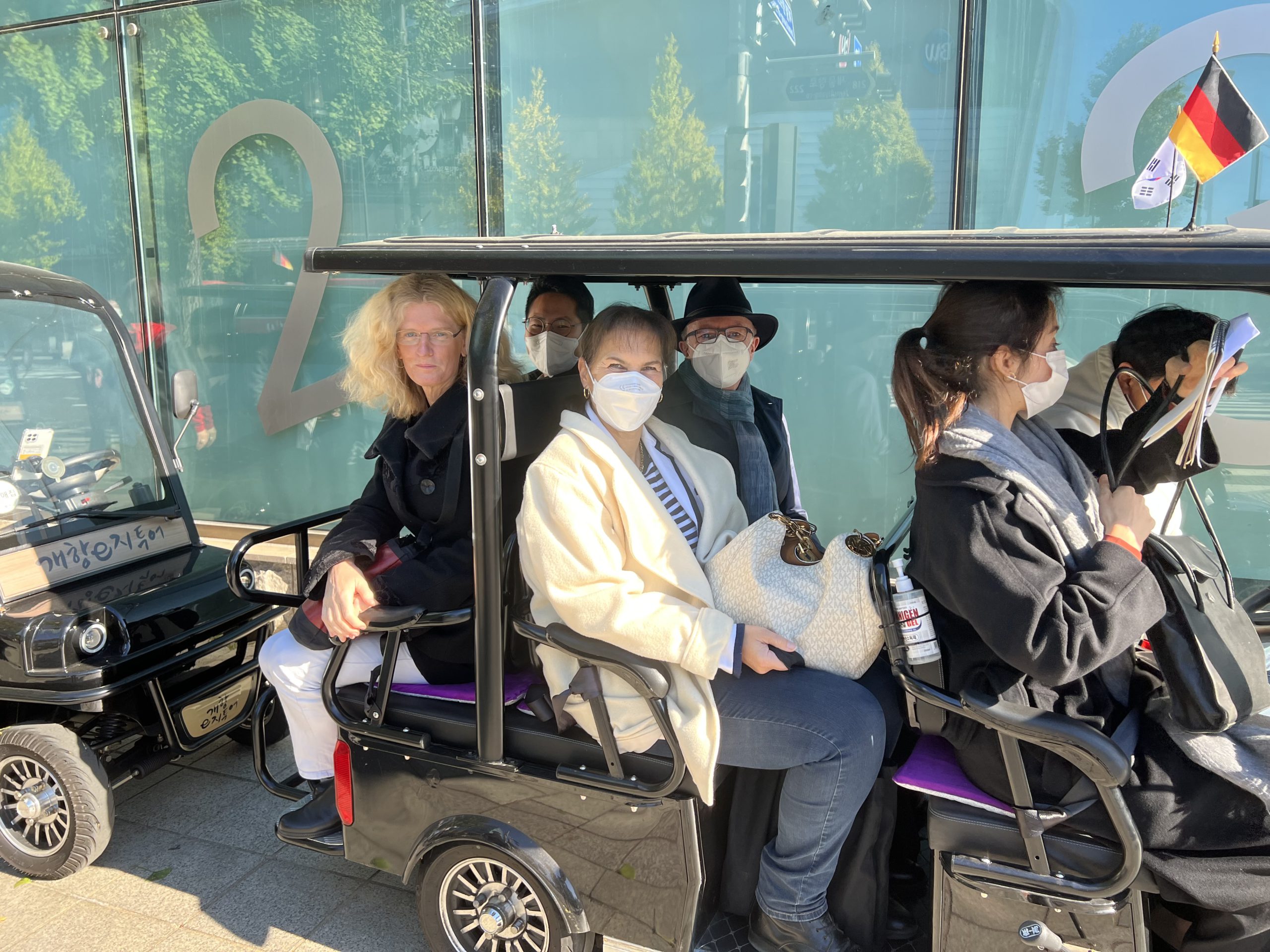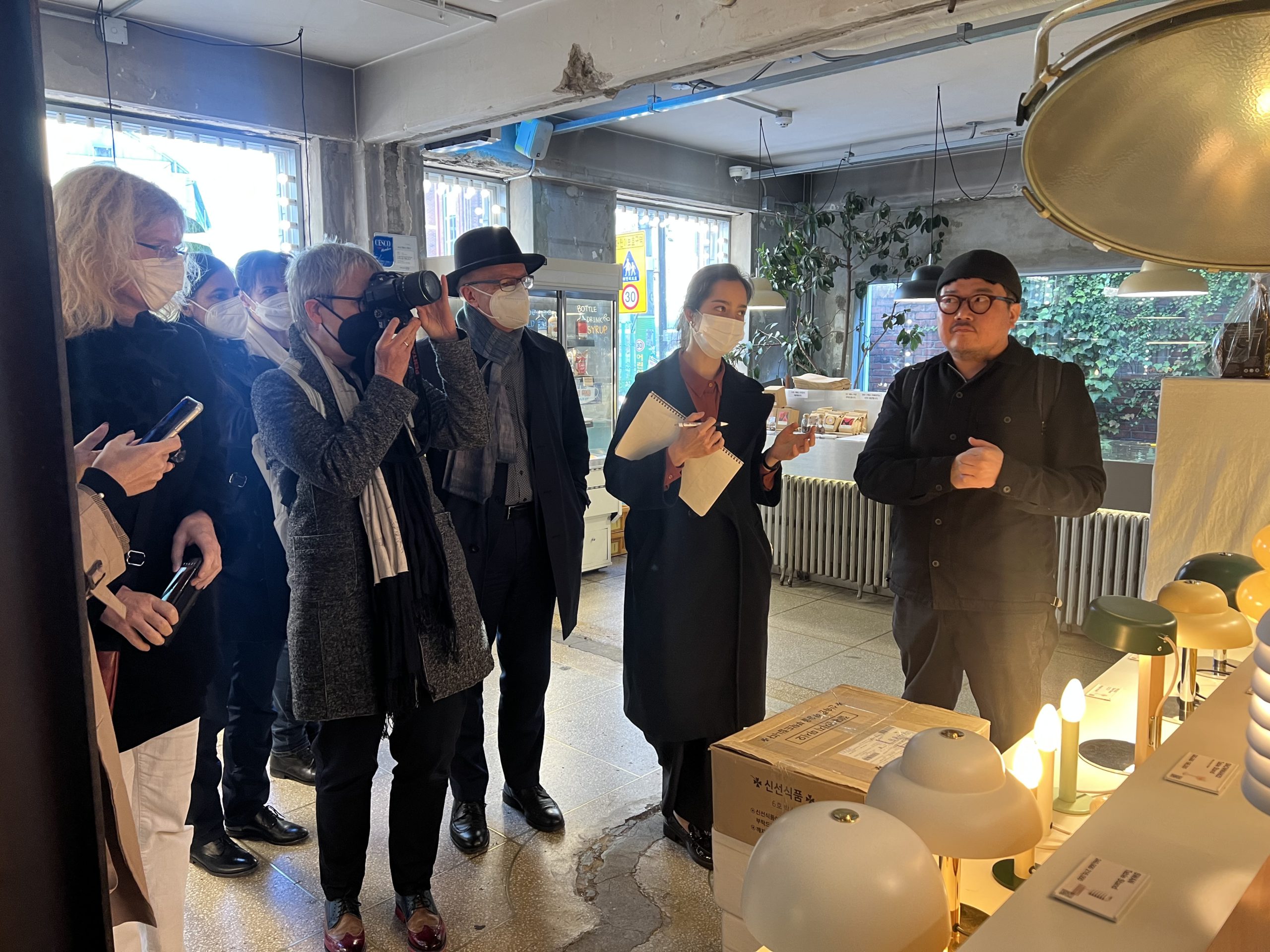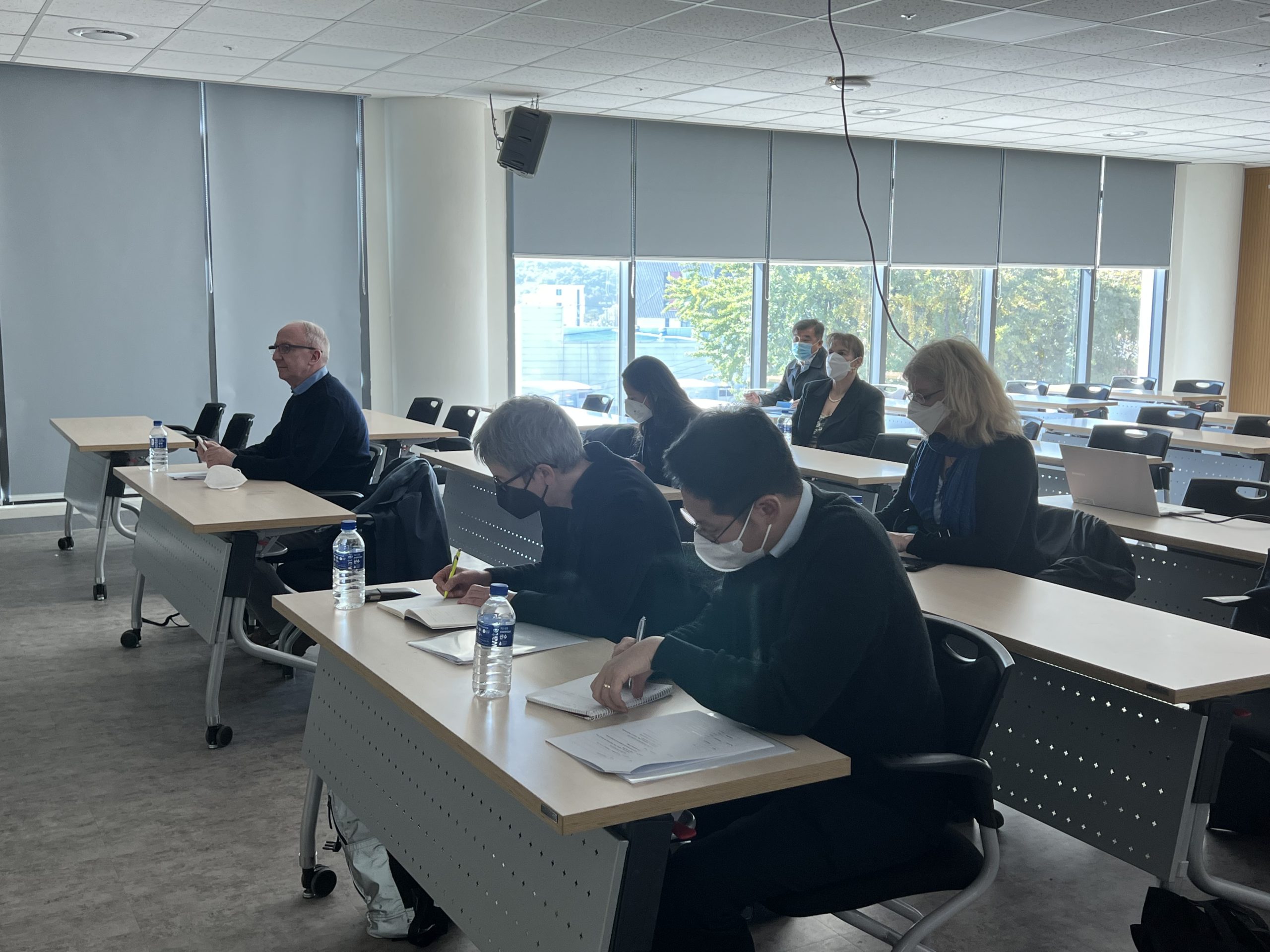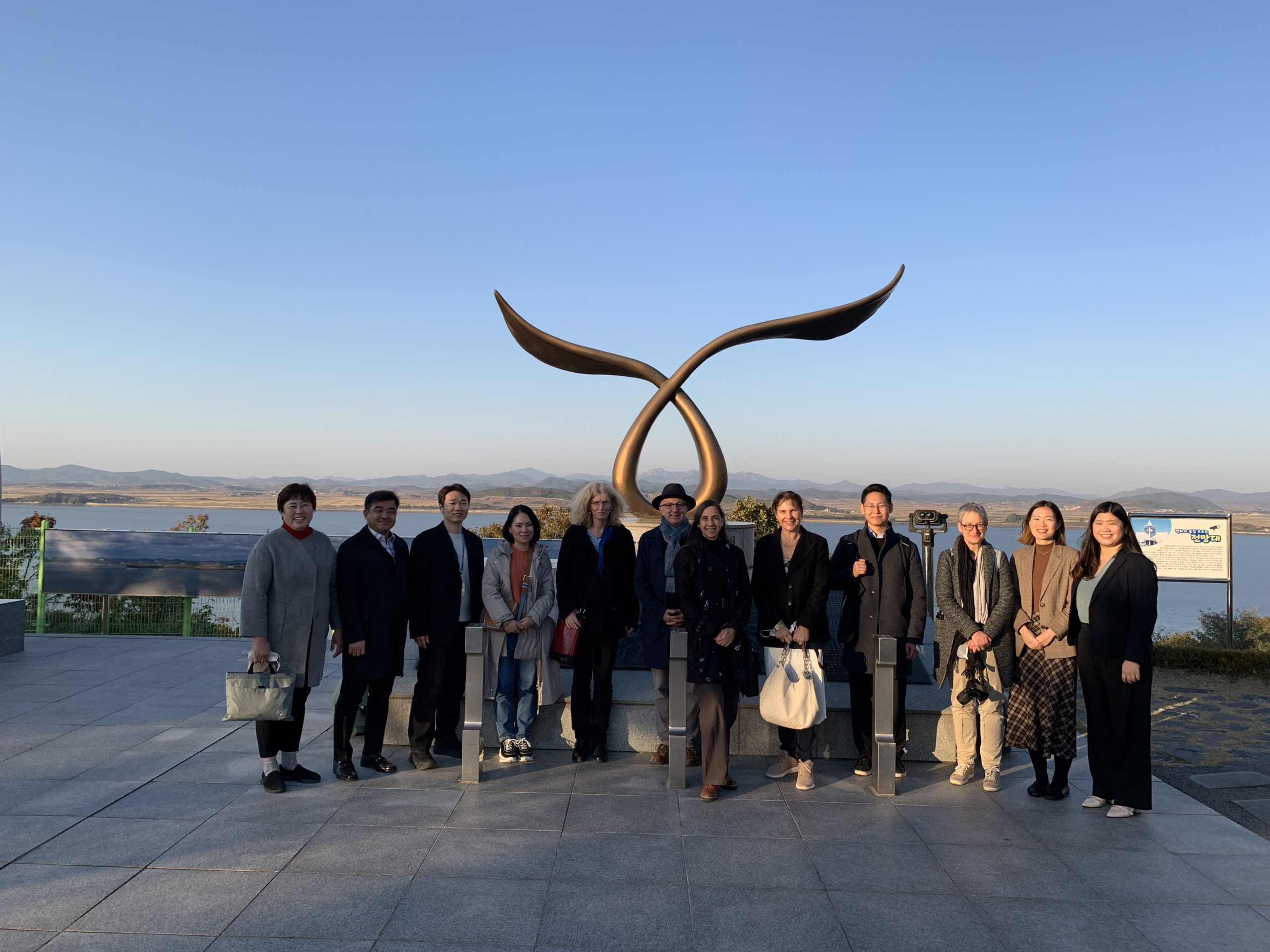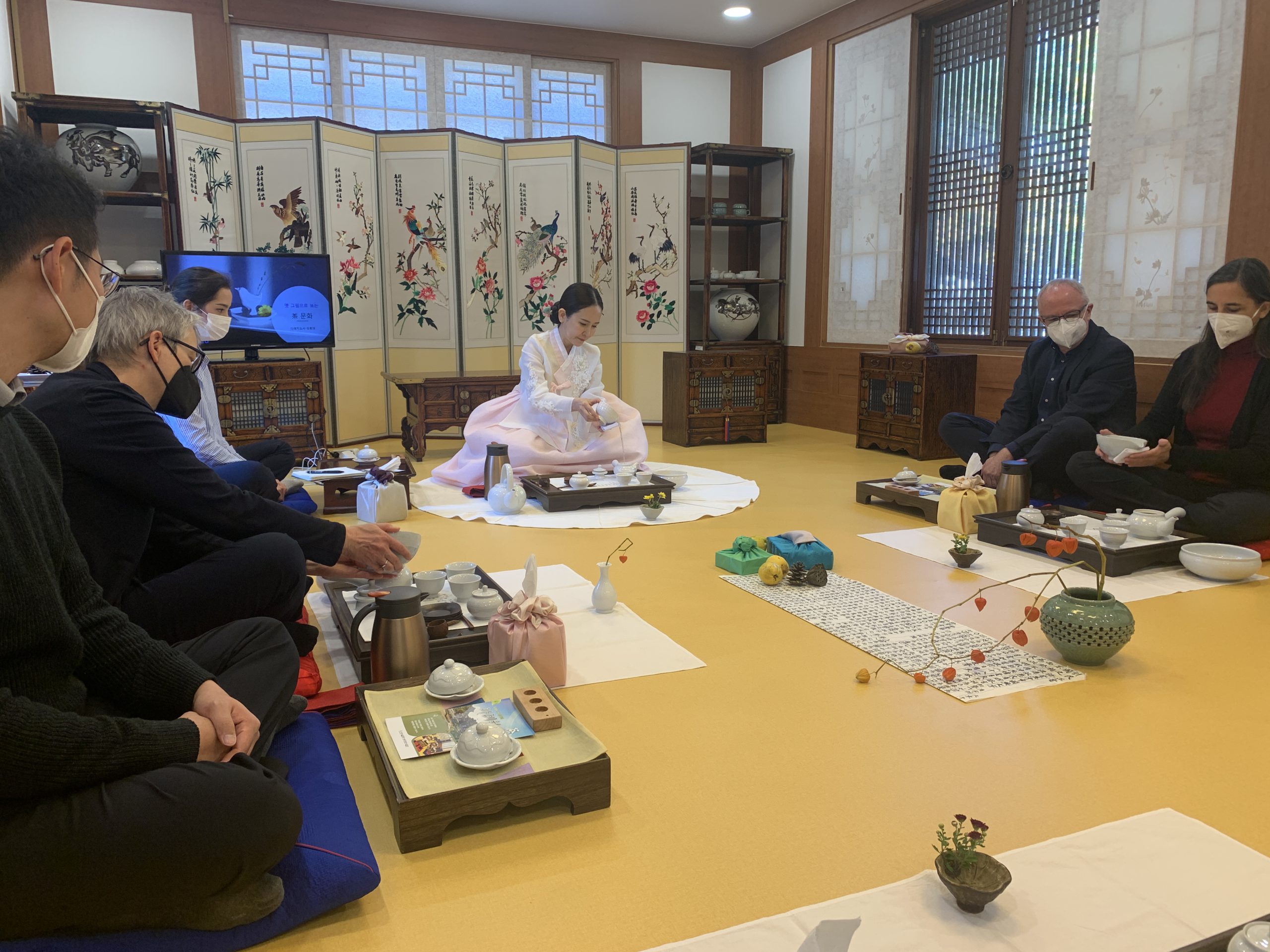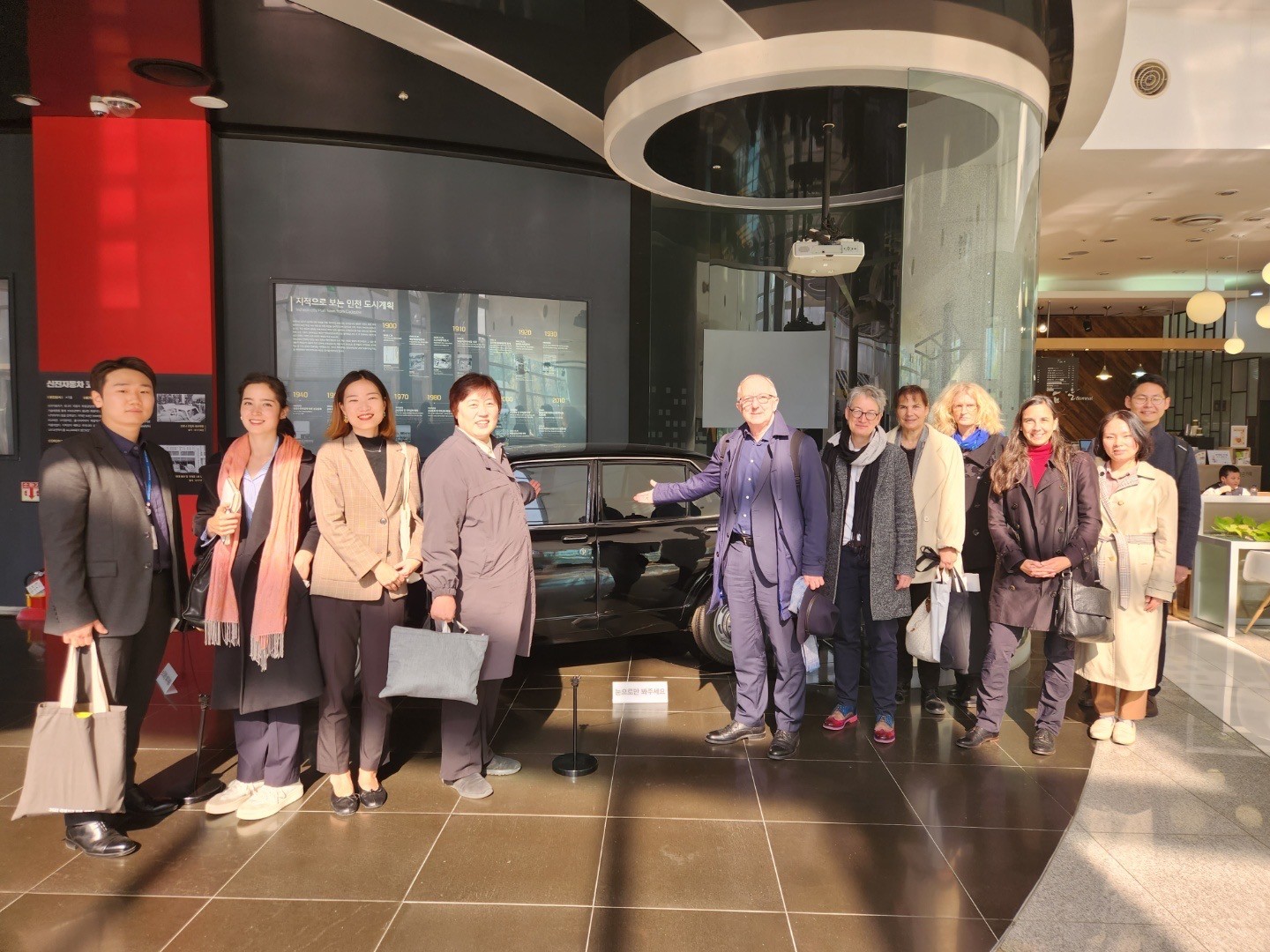As part of the ICP-AGIR programme, delegates from Berlin visited Incheon in the highly anticipated reciprocal study visit, from 17-20 October. The study visit launched with a kick-off conference at Incheon City Hall, where the Director of the International Cooperation Division, Mr. Ki-un Na, delivered warm welcoming remarks to officially start the programme.
The delegates first turned to data-driven smart cities as a focus of Incheon’s. Through the smart city approach, Incheon hopes to create a city that is easier for citizens to access and engage with, thus boosting citizen engagement in the development of a sustainable city. For now, Incheon is working off a digital twin model (testing in a virtual city based off LIDAR-scanned models of the real city) and hopes to develop the smart city concept further into the metaverse (full digital immersion including technology like AR). The Berlin delegates also visited the Gongdan Fire Station to see the Digital Twin-based Integrated On-Site Command Platform. The practical application of smart city digital twin technology allows Incheon to accurately direct emergency vehicles on the best path so they don’t cross paths with each other.
Another unique point of Incheon is the Incheon Free Economic Zone (IFEZ), which includes the planned cities of Songdo, Cheongna, and Yeongjong, all of which are hubs for new and innovative approaches in different fields: Songdo with technology, Yeongjong with logistics and aviation, and Cheongna in the medical and business fields. At IFEZ, they saw the IFEZ Smart City Operation Center in action, which can track traffic, building temperature, crime, vehicle identification, and even fire risks. By using AI deep learning zones, Incheon can allow for faster responses in areas that are more likely to be risky or dangerous. Through application of smart city technology and data, data privacy and security is always a concern, so Incheon takes special care to adhere to privacy laws and regulate the information to prevent hacking and improper use.
The delegates wrapped up the first day by visiting the Incheon Start-Up Park, Korea’s first Public-Private Partnership open innovation start-up cluster. The two buildings currently have space to host about 80 start-ups together.
The second day’s theme was on urban regeneration and started with a visit to Jemulpo Club and Incheon Citizens’ Club. Both of these sites, across the street from each other, are a perfect snapshot of “old but new.” The land, roads, and buildings have been maintained to largely be the same as what they were in 1950. These two buildings have now been transformed into public spaces for the citizens.
Wolmi Island was the next site of urban regeneration visited. It is a park that has been beautified from an industrial zone into a place where citizens can enjoy nature. As it is located in the inner port, from the Observatory in Wolmi Park, you can see the logistics of the Incheon Inner Port.
The Gaehang-ro Project was the last stop for Day 2. Unlike the other projects, the Gaehang-ro Project is a private-led project that has renovated 21 buildings into shops, revitalizing previously abandoned areas. The goal of the Gaehang-ro Project is to gather citizens and give them places to meet, as people are the core of cities. To create sustainable stores, it is imperative to make them irreplaceable and unique. “Old stores” have unique atmospheres and irreplaceable histories, so these are the focus of the Gaehang-ro Project. By combining expertise with knowledge of trends, these old stores can be revived. The project focuses on combining old and new to create unique stores that cannot be replicated.
On the third day of the study visit, the Berlin delegates travelled to Ganghwa, a region in Incheon that has undergone significant urban regeneration. Ganghwa Island is one of the closest places to North Korea and was battered by several wars. However, today, facilities have been established, including the Ganghwa Urban Regeneration Support Center, where citizens can gather for lessons, participate in the citizen-run café and side-dish shop, and where children can play at the kids café. The town itself has also been renovated to create green public space and beautify the town for its citizens. This strong focus on citizen engagement and urban regeneration themes during the study visit have stemmed from the Cooperation Action Plan (CAP) session that was held in Berlin in June.
The delegates also visited Sochang, a textile factory, where they got a chance to decorate the special textile with multi-coloured stamps and try on hanbok, the traditional Korean outfit. This location had unique Koryo era hanbok.
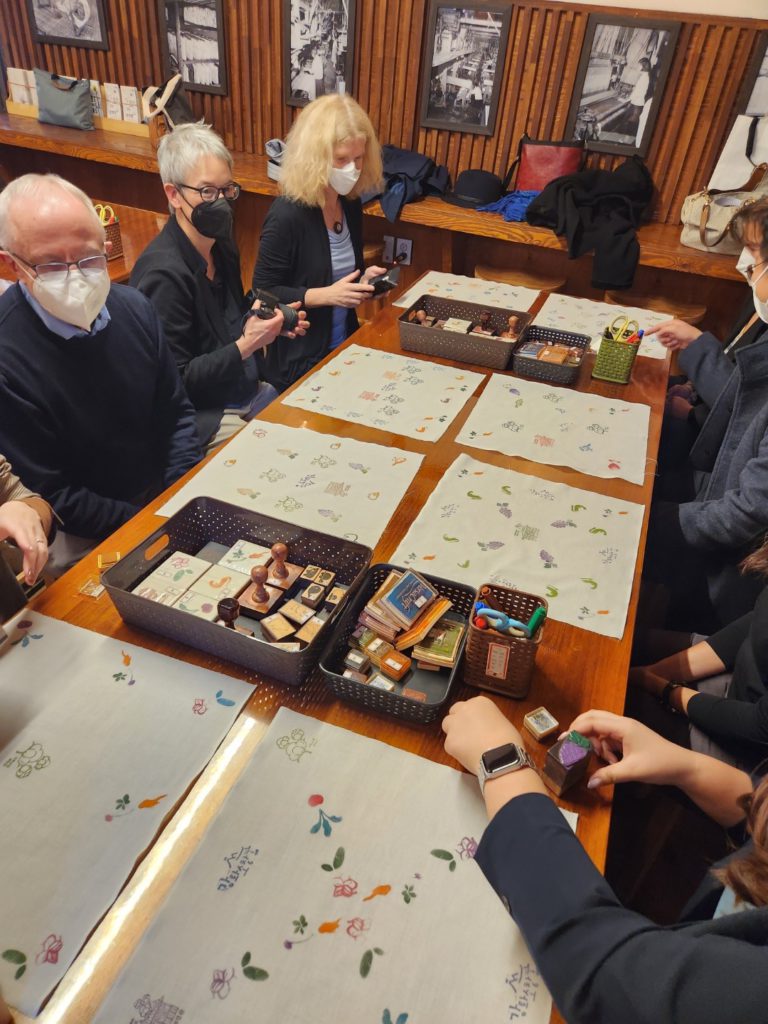 | 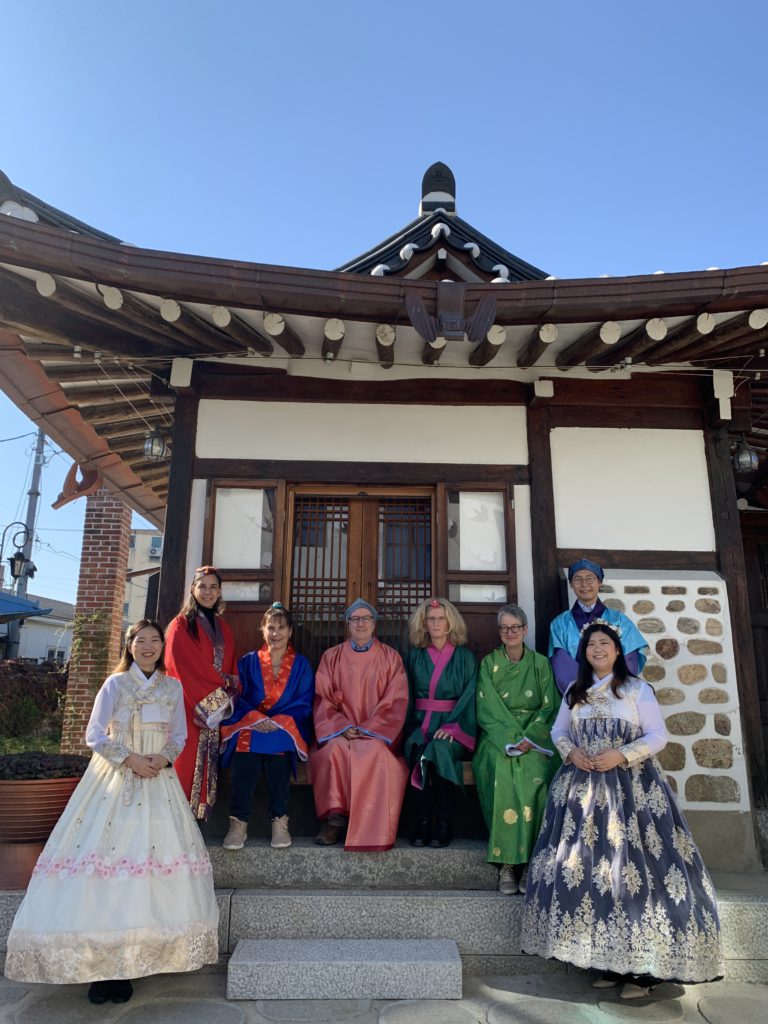 |
The Berlin delegates visited the Ganghwa Peace Observatory as the last part of the third day’s study visit, having a unique opportunity to look across just 2 km of water to see North Korea on the other side. As both cities are part of countries that have experienced division, it was an experience that surely brought forth memories of Germany’s division and reconciliation. The Observatory was built as a cultural tourism place to wish for peaceful reunification and a place for people with family still in North Korea to think about their loved ones.
Finally, on the last day of the study visit, the delegates were able to experience more of Incheon’s culture and discuss the CAP in detail. The delegates first visited Incheon Urban Histroy Museum and Tea Ceremony House. Since Incheon was geographically very significant in the period of Japanese colonial era in terms of foreign trade and military operations, Berlin delegates were able to learn more about the background of Korea’s general urban development by learning the urban history of Incheon. They also had the opportunity to partake in a traditional Korean tea ceremony!
The delegates dropped by the Incheon Global Campus, a hub in Incheon for foreign universities. The plan is for Incheon to expand this campus in the future, and the delegates discussed the possibility of inviting Humboldt University or Berlin University Alliance to Incheon Global Campus.
The most interesting part of the day was the final CAP session, where Berlin and Incheon agreed on their interest in signing an MOU to focus on the theme of urban regeneration and smart city, including detailed activity plans such as technical visits and jointly hosting the 2023 Smart City International Symposium and Berlin-Asia Pacific Week session. This MOU between the departments would allow the cities to have a long-term partnership.
After the visit to the Incheon Global Campus, both cities also decided that expanding the cooperation to the academic level between Incheon and Berlin would be a great next step to further cooperation on a different level. The cities agreed to conduct their next bilateral meeting with university stakeholders to discuss the possibility of inviting one of Berlin’s universities to Incheon Global Campus.
Berlin and Incheon had a very action-packed four days together, and it culminated in very active discussion during the CAP session. It’s very exciting to see the cities planning their next moves already for the long-term cooperation that will extend past the project! We can’t wait to see results coming from this partnership between Berlin and Incheon.

